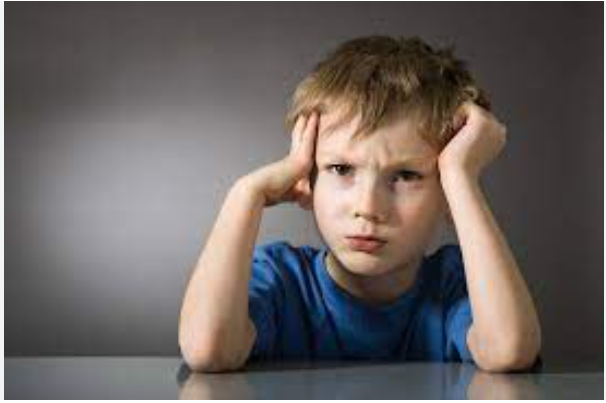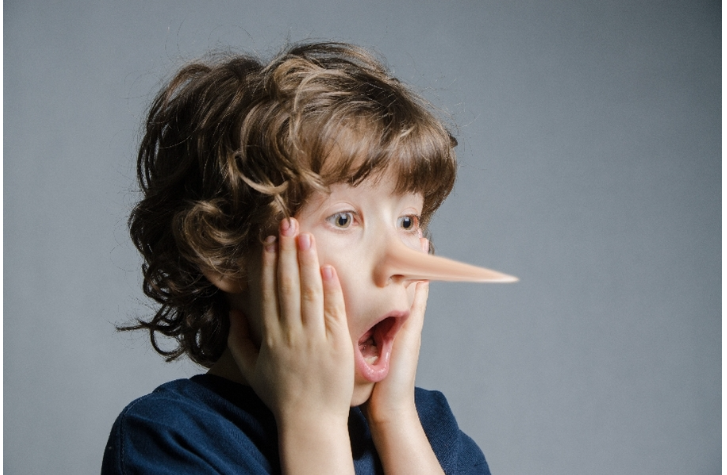Why Do Kids Lie?
All children tell lies from time to time, and they do it for various reasons at different ages. Understanding why they lie and knowing how to guide them toward honesty is key to helping them develop truthfulness.
Why Kids Lie: Ages 3 to 4
It’s almost impossible for a 2- or 3-year-old to fully grasp the concept of lying. At this age, kids don’t yet understand the distinction between fantasy and reality, and they certainly don’t realize that lying might help them avoid things they don’t want to do.

Around ages 5 to 6, though, kids start to understand both that lying is wrong and that it might help them achieve what they want in the short term. As a result, the way parents approach lies will likely need to evolve.
Many lies stem from kids not yet having developed certain social or problem-solving skills. Every child will tell a fib at some point – it’s just a matter of when you’ll notice them stretching the truth or denying something they’ve clearly done.
Instead of rushing to punish or get angry, try to view lying as a learning opportunity to address the reason behind the behavior.
Why Kids Lie: Ages 3 to 4
Lying usually starts around age 3, though it could begin slightly earlier or later. At this stage, kids are not intentionally trying to deceive you. They’re simply becoming aware that you can’t read their mind – and it’s thrilling for them to discover that they can say something untrue, and you won’t automatically know it’s false. They also don’t yet understand that lying is morally wrong.
Here are a few common reasons young children lie:
- Wishful thinking or imagination. Young kids live in a world of imagination, and they may believe what they dream up is real. For example, when your child claims they didn’t break a vase, they’re not trying to deceive you. They’re wishing it didn’t happen so strongly that they convince themselves they weren’t involved.
- Curiosity and exploration. Some lies at this age come from curiosity. When kids realize they can lie, they might do it just to see what happens. For example, they might claim not to know where their toy is hidden, even though they hid it themselves.
- Testing limits. Young children frequently test boundaries. They may claim they haven’t watched TV today, even though you know they’ve already watched their allotted screen time. It’s their way of pushing the rules.
- Avoiding disapproval. If a child knows they’ve done something that might disappoint you, like spilling juice, they may lie to avoid the discomfort of your disappointment.
- Fear of punishment. Similarly, if they know they’re about to face consequences for an action, they may lie in an attempt to avoid those consequences.
- Attention seeking. Some kids lie simply to get attention. For instance, if they tell you they swam across the entire pool by themselves, it’s their way of seeking approval for an impressive feat, even if it didn’t really happen.

Consequences for Lying: Ages 3 to 4
At this stage, punishing lies won’t be very effective. Instead, use conversations to help your child understand the difference between right and wrong, while teaching communication and problem-solving skills.
Your goal is to establish clear boundaries and encourage open, honest communication. You want to create a safe environment where your child feels comfortable expressing their needs and feelings.
Some strategies you can use when you catch your child in a lie include:
- Understand their perspective. If your child eats a cookie and then denies it (with crumbs all over their mouth), they’re not a bad person – they’re just trying to avoid the consequences.
- Offer a better alternative. Teach your child what they should have said. For example, if they lie about spilling their juice, hand them a towel and say, “Let’s clean this up together.” This shifts the focus away from the lie and onto fixing the issue.
- Explain why lying isn’t okay. After addressing the issue, take a moment to talk about why telling the truth is important. Keep the discussion short, as long lectures may only make your child feel guilty or ashamed.
- Be consistent. Stick to the rules and boundaries you’ve set. If a child’s lie is connected to boundary-pushing, consistency will help reinforce those limits.
- Avoid labeling. Don’t call your child a liar. Labels can make them feel bad about themselves and may even encourage more lying in the future.
Nurturing a sense of honesty is just as important as dealing with the lie itself. Here’s how to encourage truthfulness:
- Reduce opportunities for lying. Instead of asking if your child forgot to clean up, state the obvious: “I see toys all over the floor. Let’s clean them up together.”
- Be a role model. Show your child the importance of honesty by being truthful yourself. For example, if your child is getting a shot, don’t tell them it won’t hurt – they’ll know it does.
- Foster trust. Assure your child that mistakes are normal and that you’ll love them regardless of their actions.
Why Kids Lie: Ages 5 to 8
As children get older, they become more skilled at lying. By ages 5 to 6, they typically know when they’re lying and why, making it harder to catch them in the act.
Older kids lie for many of the same reasons as younger ones – to avoid trouble, test boundaries, or get attention. However, as they grow, they may also lie to:
- Get what they want. They may lie about having finished their homework to avoid doing chores.
- Handle social pressure. As peer interactions become more complex, children may lie to fit in or impress others.
Consequences for Lying: Ages 5 to 8
By now, children fully understand the difference between fantasy and reality, so it’s important to create a trusting environment where they feel safe being honest. If you catch your child lying:
- Give them time to reconsider. If a child lies, give them a few minutes to rethink their story. For example, say, “If you want to tell me the truth in a few minutes, I won’t be upset.”
- Address the lie directly. Let your child know that you’re aware of the untruth and explain that lying makes it difficult for others to trust them in the future.
- Explain the consequences. Help your child think about how lying affects relationships, and make sure to follow through with appropriate consequences if lying becomes a habit.
Fostering Honesty
To help your child become more truthful, you can:
- Reward honesty. Praise your child when they tell the truth, and let them know that they will always face fewer consequences for being honest.
- Teach problem-solving. Help your child understand that choices come with different outcomes. Use real-life examples to show how telling the truth benefits everyone.
- Connect with your child. Spend quality time together daily, allowing your child to feel connected and secure.
- Use books to teach honesty. Reading together can help reinforce the value of truth-telling.
When to Seek Help
If lying becomes a regular occurrence, or if it’s tied to other behavioral issues, consult your child’s pediatrician. A mental health professional may be able to help address deeper concerns and establish healthy boundaries between truth and deception.











2 thoughts on “Why Do Kids Lie?”